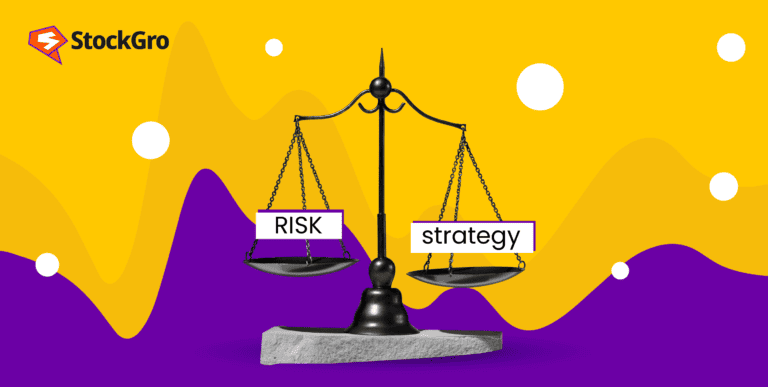
Investing in real estate doesn’t mean just buying a home – in fact, there are hundreds of other options you can explore. In this real estate guide, we’re going to talk about how you can get started on investing in real estate.
Understanding the terminology
Here are a few key investment terms you need to know before you invest in real estate:
- Capitalization rate (Cap rate) – Annual income as a percentage of the property’s value. For instance, if you receive ₹10,00,000 in income yearly from a ₹2,00,00,000 property, your cap rate is 5%.
- Cash on Cash Return (CoC Return) – This is the annual pre-tax cash you generate from the property, also calculated as a percentage of your investment.
- Loan-to-Value Ratio (LTV) – Loan amount compared to the property’s value.
- Depreciation – Decrease in a property’s value over time. This is important because you can generate tax benefits from the depreciation of your property.
Understanding real estate investing
Now that we have the terminology clear, we should start exploring how it is that you can start investing in real estate. Here are some ways.
Rental properties
You could invest in property that you could then lend out to tenants and be a landlord. As a landlord, however, you will be responsible for things like paying the mortgage on the house or commercial property, dealing with property taxes, and insurance. You will also have to manage the property, find tenants, and deal with any damages to the house that could increase your overhead.
Bigger rental investors hire property managers that take care of the nitty-gritties, leaving them to handle the finances. If you’re just starting out, dealing with tenants can often be a fulltime job in itself.
In this situation, you make your money by collecting rent. How much you charge depends on several factors like location, average cap rate for properties of that size, and your target tenants.
Another way you make money is through the appreciation of your property’s value, which you can then resell for a higher price. Some landlords manage their rent and mortgage in a way that they’re both equal. In that case, they pay nothing except maintenance and benefit entirely from the appreciation of the property.
Also Read: Is real estate growth in India sustainable? Opportunities vs Challenges!
Flipping houses
Flipping houses is the real estate equivalent of day trading. Flippers buy properties with the intention of holding them for a short period of time (typically around 3-4 months) and quickly selling them for a profit. This is how it works:
- Repair and update – Flippers often undertake repairs and minor developments to their properties. This is ideally finished as fast as possible at a minimum price to maximise margins.
- Hold and resell – In a rapidly booming real estate market, you could also take your chances by holding the property for some time and trying to sell it at a higher price.
In either case, flipping houses is risky because you rely on a customer who’s willing to buy a house from you in a short-time period. If you don’t find a suitable buyer, you could also end up paying the mortgage on the house for a long time.
Investing in a REIT
A real estate investment trust (REIT) is created when a corporation uses its investors’ money to buy, operate, and sell income-producing properties. These REITs are sold and traded on major exchanges, ust like equity or mutual funds or ETFs.
An REIT has a special structure though, where they are obligated to collect and pay out 90% of their taxable profits to shareholders as dividends. Unlike a regular company that gets taxed on profits, REITs avoid paying corporate tax.
This investment is usually a great place to start, especially if you’re looking to make some passive income.
Also Read: Your guide to real estate investment trusts
Real Estate Investment Groups
Real estate investment groups (REIGs) are sort of like small mutual funds for rental properties. If you want to own a rental property but don’t want the hassle of being a landlord, an REIG is the solution for you.
This sort of a company would buy sets of buildings and apartments and allow investors to buy them through the company. One investor could hold one or multiple units within these buildings but don’t have to worry about maintenance, finding tenants, or insurance – the company does that. While the owners get their rent, a small portion is taken by the company as fees.
The lease for these single or multiple units are under the owners’ name, and all units pool a portion of their rent to cover expenses in case a room goes unrented for some time. This means that as an owner, you will receive enough to pay your mortgage payments even if your unit is empty.
Why invest in real estate?
Here are some reasons why you might want to invest in real estate:
- Tangible asset that appreciates – Unlike stocks, real estate represents a tangible asset you can physically own and see. This can offer psychological comfort and a sense of control over your investment.
- Regular cash flows – Real estate investments, particularly buy-and-hold strategies, can generate consistent rental income, providing a predictable cash flow stream. This can be valuable for supplementing your income, covering property expenses, or reinvesting in further growth.
- They’re a good hedge against inflation – Real estate tends to be a good hedge against inflation. Over time, rental income and property values can increase alongside inflation, keeping pace with the rising cost of living.
Also Read: The Nifty Realty Index 2023: India’s real estate powerhouse
Conclusion
However, real estate is not the perfect investment. Real estate investments have less liquidity, they have a lot of management responsibilities, and a higher upfront investment – which makes them suitable only for certain kinds of seasoned investors. However, we encourage you to diversify your portfolio with real estate also, and do your own research before investing any money. Good luck!

